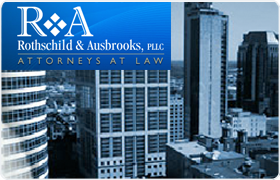Eagleville Credit & Debt Lawyer, Tennessee
Sponsored Law Firm
-
 x
x

Click For More Info:
-
Rothschild & Ausbrooks, PLLC
1222 16th Ave. South, Suite 12 Nashville, TN 37212» view mapBankruptcy Filing, Chapter 7, Chapter 13 You Are Not Alone. We Can Help.
Our law firm encourages communication. We respond to calls and e-mails promptly. This is your case, and you will be involved every step of the way.
800-966-8531
Cathy Gasser
Bankruptcy, Banking & Finance, Administrative Law, Credit & Debt
Status: In Good Standing Licensed: 13 Years
Daniel Osborne
Bankruptcy, Banking & Finance, Litigation, Credit & Debt
Status: In Good Standing Licensed: 14 Years
Linda Sue Nicklos
Insurance, Credit & Debt, Family Law, International
Status: In Good Standing Licensed: 13 Years
Linda Nicklos
Insurance, Credit & Debt, Family Law, International
Status: In Good Standing Licensed: 13 Years
Clifton Boyle Sobel
Administrative Law, Credit & Debt, Elder Law, Family Law
Status: In Good Standing Licensed: 30 Years
Gary Wicks
Family Law, Elder Law, Insurance, Credit & Debt, Estate Planning
Status: In Good Standing Licensed: 26 Years
Ewing Thomas Sellers
Wills & Probate, Estate Planning, Family Law, Credit & Debt
Status: In Good Standing Licensed: 44 Years
Ewing Sellers
Wills & Probate, Estate Planning, Family Law, Credit & Debt
Status: In Good Standing Licensed: 44 Years
Jeffrey Russell Smith
Corporate, Credit & Debt, Elder Law, Estate Planning
Status: In Good Standing Licensed: 26 Years

 Mary Ausbrooks Nashville, TN
Mary Ausbrooks Nashville, TN Contact UsCall or Email
Contact UsCall or Email LinkedIn
LinkedIn
